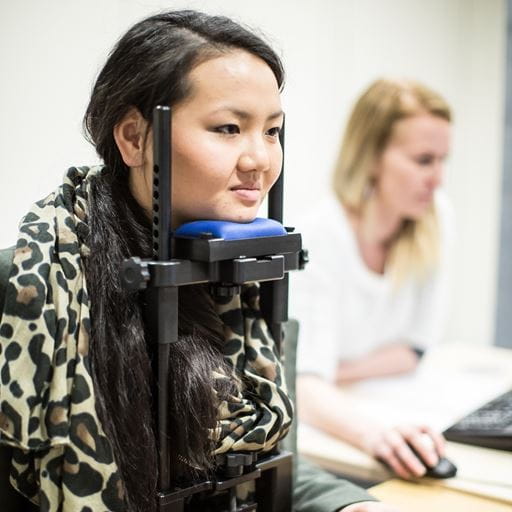Our research mission

Understanding our place in the world
At Essex, research in the Psychology Department is united by a central mission: to understand our place in the world.
We explore how people think about, interact with, and experience the world around them - an approach we call TIE. These three interconnected lenses guide our research across diverse topics, tying together the many threads of psychological science.
We’ve built a dynamic and collaborative research environment that reflects the original vision of Essex’s first Vice-Chancellor, Sir Albert Sloman, who championed the idea of breaking down disciplinary boundaries to pursue the unity of knowledge. That vision continues to shape how we work today.
Although we’re based in the Faculty of Science and Health, our research crosses traditional borders. We collaborate closely with the Faculty of Social Sciences and engage with interdisciplinary hubs such as the Essex Biomedical Sciences Centre (EBSC) and the Institute for Social and Economic Research (ISER). These partnerships reflect our belief that complex questions require collaborative answers.
To bring our mission to life, our research focuses on nine “worlds”, broad thematic areas that reflect the real-world contexts in which psychological processes unfold. You can find out more about each of these worlds below. Importantly, within and across these worlds, our researchers apply diverse methods (e.g., neuroscience, behavioural) and perspectives to explore the full spectrum of human thought, behaviour, and experience. Our structure encourages intellectual ambition, interdisciplinary collaboration, and research excellence.
We’re committed to investing in our facilities. Over the past few years, we have invested more than £500,000 into our facilities, including the acquisition of a transcranial ultrasound stimulation device (TUS). By offering our staff and students the opportunity to use state-of-the art facilities and by fostering cross-disciplinary collaborations, we enhance our collective strength and extend the reach of our research mission.
In the most recent Research Excellence Framework (REF 2021), we were ranked 20th in the UK for research outputs (GPA) and 17th for research power, a recognition of the quality, depth, and relevance of our work.
Explore our worlds

An educational world prioritises learning, knowledge, and access to quality education for all. It’s a world where education empowers individuals, diverse perspectives are valued, and people are encouraged to pursue both academic and personal growth. The educated world fosters a culture of curiosity, innovation, and lifelong learning.

In a sustainable world, resources are used to meet the needs of the present without compromising the future. Environmental protection, social well-being, and economic stability go hand in hand, promoting practices that preserve natural ecosystems, reduce waste, and encourage responsible consumption.
Highlights of our research
Research showcase
Research in our department has real-world impact that improves the lives of people in all walks of life:
- Transforming the lives of those suffering visual stress - Can tinted lenses help sufferers of visual stress?
- Improving the lives of military veterans with Post Traumatic Stress Disorder - An alternative to traditional therapy has been developed at Essex to help veterans with PTSD.
- Making smart meters more effective at reducing household energy consumption -Smart meters are seen as a key tool that will persuade households to reduce energy consumption. But psychologists from our department have discovered it's not as easy as companies and government believe.
Papers
Our academics publish papers in a range of journals related to their areas of interest. Some of our papers include:
- Making sense of misfortune: Deservingness, self-esteem, and patterns of self-defeat (Mitchell Callan, Aaron Kay, Rael Dawtry.)
- The neural basis of somatosensory remapping develops in human infancy (Silvia Rigato, Jannath Begum Ali, José van Velzen, Andrew J. Bremner.)
- The role of explicit categorization in the Implicit Association Test. (Motonori Yamaguchi, & Geoffrey Beattie.)
- The highs and lows of a cultural transition: A longitudinal analysis of sojourner stress and adaptation across 50 countries (Kali A. Demes, Nicolas Geeraert.)
- Attitudes, Habits and Behavior Change. Annual Review of Psychology. (Bas Verplanken, Sheina Orbell).
Press
Our researchers frequently appear in national and international press and contribute articles to The Conversation:
- Feeling a bit bored? Dr Wijnand Van Tilburg takes a look at the history of boredom, and some of the science behind it.
- Dr Veronica Lamarche wrote about "How do you know when it's time to break up?", and "How to cope with romantic rejection".
- Parents and children need a close bond, but Dr Pascal Vrticka has shown that parent-child synchrony can also be a sign of a difficult relationship.
- From microaggressions to overt discrimination, Dr Angela Meadows writes about how weight stigma causes harm.
Investment in facilities
In the last five years we have invested in facilities of the highest quality.
- We have continued to invest in our Centre for Brain Science, with over £300k spent on equipment and software over the past two years to ensure our researchers have access to the tools they need.
- We also have excellent facilities for electroencephalography (EEG) and transcranial magnetic stimulation (TMS), with multi-method equipment.












